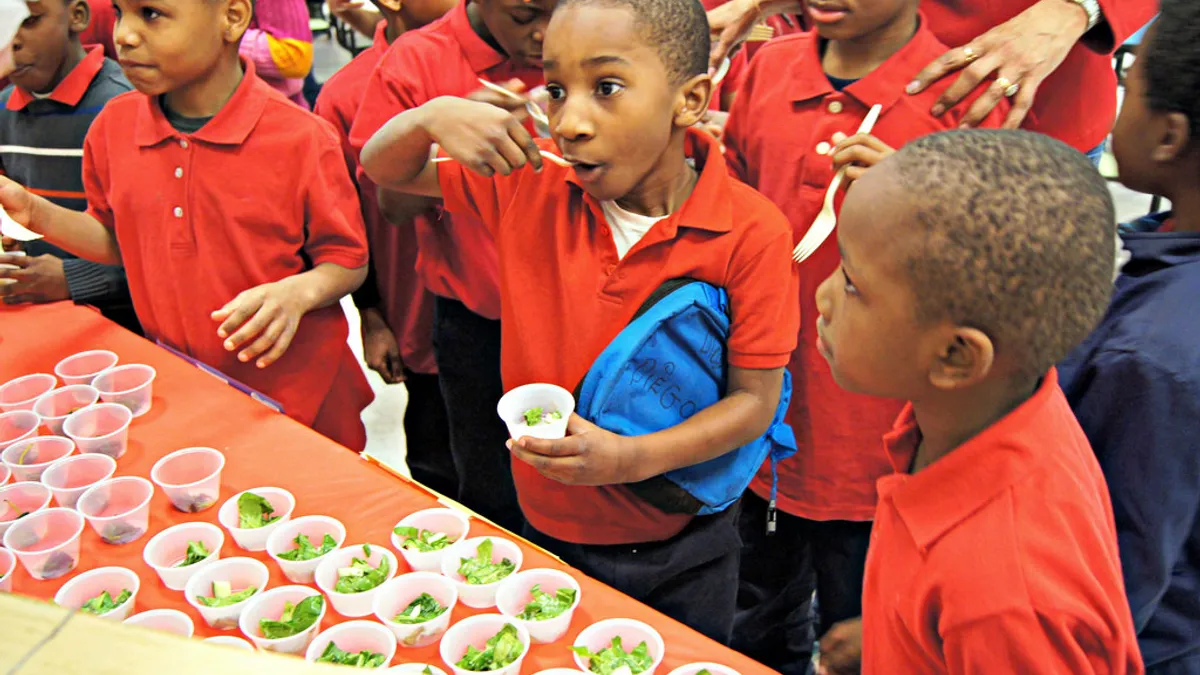Dive Brief:
-
As the nation continues to deal with the longest partial federal government shutdown in history, most school leaders aren't very concerned about how school operations will be affected this year since the U.S. Department of Education is funded during the shutdown, Education Week reports.
-
The most immediate area of concern for school funding is its impact on the National School Lunch program, which is administered by the U.S. Department of Agriculture — a department that is affected and only has enough money to meet needs through March.
-
School leaders also need to consider the direct impact the shutdown is having on students whose parents are in the military, are federal employees, or work in businesses affected by the loss of income those employees are facing, preparing to offer practical help in the form of clothing closets or food pantries, access to community resources, and emotional support and understanding.
Dive Insight:
Schools are fortunate during the current federal shutdown that the Department of Education is funded for now, and that schools have or will receive most of their federal funding for the current year. However, the potential impact of the loss of funding for the National School Lunch Program in March will cause headaches for school district leaders as they scramble to find alternative sources of funding in order to keep students fed — especially as these students may be facing greater hardships at home because of the shutdown.
There is time for this crisis to be averted, but since there has been little movement on the shutdown so far, school leaders may want to consider alternative sources of funding if it extends until March. School lunch programs usually have their own separate budget within the overall school budget. If properly managed, these programs may have healthy fund balances that can carry them through the end of the school year. Otherwise, districts may be forced to dip into general fund balances or seek additional state or local funds to keep the program running.
The school lunch program is of even greater importance during a shutdown because more families may need assistance now due to cut wages. Though the current federal shutdown does not have a great direct impact on schools at this time, it may be impacting the families of some federal employees, those who depend on agricultural subsidies or loans, needy families who depend on HUD-subsidized housing, those receiving SNAP benefits, and some health programs — especially those affecting Native Americans.
School leaders need to work to address what needs they can for these families by encouraging participation in the school lunch program, connecting families with available resources, and providing for clothing and food needs when possible. As families deal with the uncertainty and turmoil during this period, schools need to be aware of the emotional demands this situation places on students, as well.
If the shutdown lasts for several months, school leaders will need to step up the level of concern for district finances as grants and federal funding may be affected for the coming year. The good news is that the nation has survived many shutdowns in the past. The hope is that national leaders will find an end to the game soon and get the government back on track before more lives are affected.













